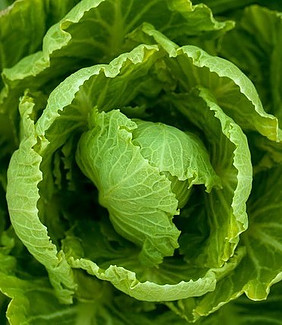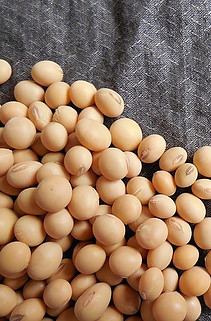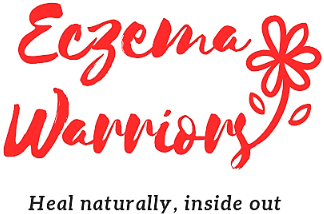
To heal eczema naturally, diet is key. Many people have looked into their diet to help eczema, and succeeded in clearing it completely. If you have been trying to deal with your eczema through improving your diet, and found that it does not seem to help much, it could be due to one of these reasons:
- whatever irritant that you are trying to eliminate, there are still traces of it in your diet
- you may have allergies that you are not aware of
- there may be multiple food sensitivities affecting you
- a leaky gut can cause your body to develop sensitivities to even more foods
- triggers not related to diet
We use diet to help eczema – the key lies in how strict the elimination diet is
Since you have started working on your diet to help eczema, or are considering it, then you are on the right track, as you may already know about how closely linked the skin is to the gut. There is more information on this website: chriskresser.com.
If you suspect dairy to be a trigger, for instance, make sure it is removed from your diet TOTALLY. You need the knowledge on which foods contain dairy. Apart from the obvious ones like cheese, ice cream and yoghurt, dairy lurks in a lot of other processed foods like pastries and most baked goods, sauces, soups, chocolate, and even some candies. Check labels, read ingredients like how you would scrutinise a contractual document, as you are ‘signing’ your health over to this food that you are putting into your mouth.
If there is no clear target food that you can identify and yet eczema is taking over your life with the incessant itch and dry, flaky skin, then consider eliminating the top 8 allergens from your diet, as a start – dairy, eggs, peanuts, tree nuts, fish, shellfish, soy, wheat. It takes A LOT of effort, and it feels like there is nothing left that you can eat. For more information about the top 8, visit the U.S. FDA website.
Why it has to be this way
We have gone through this with our two eczema warriors (you can read about our gluten free journeys here: round 1 and round 2), and I can assure you, if doing this works in clearing up your eczema, it will be so worth it. Because it means you are still early in nipping the problem in the bud, before these triggers, if left unidentified for too long, cause chronic inflammation enough to weaken your immune system and your health goes downhill as leaky gut sets in, you become sensitive to more and more foods, even the most healthy ones.
The weakened digestive system is not able to absorb nutrients properly to allow your body to heal, so you are left feeling extremely exhausted and cranky most of the time. The leaky gut allows substances to pass through that a healthy gut wouldn’t: some problematic proteins, partially digested foods, some toxic substances, etc.
Eczema is a shout for help from within your body
As these undesirable substances circulate in your bloodstream, the body tries to eliminate them through the skin. Hence, a serious internal health issue manifests on the skin. No amount of steroids (please don’t go down the steroid route, read our experience with topical steroid withdrawal here) or creams will even go close to the root of the problem.
In fact, steroids simply put a lid over the fire which is still burning underneath, and actually create larger problems as they mess with your hormones. Addressing your diet will get you to the root cause of your skin issues, though it is the harder way, but it is the right way.
Multiple food sensitivities
So go strict on your elimination. Even if it does not clear up your eczema completely, but you can see some obvious results, then whatever you have eliminated has been partially contributing to your eczema. Stick to the diet while you dig further for more suspects, which you would eliminate too, until things improve to a level that you can accept. If you are worried about getting enough nutrition, do work with a nutritionist or a natural health practitioner.

Many eczema sufferers react or are sensitive to more than one food. So at any one time if you are just eliminating one food, then you may go away with the misconceived idea that that food is not a trigger for you. For instance, if you eliminate soy for two weeks, you may still be plagued by a dull itch and inflammation caused by eggs. For the following two weeks, you remove eggs but put back soy, which continues to bother your skin, so you concluded that eggs and soy are not your triggers, when in fact, both are equal culprits.
If you have no clue, start with removing the top 8 allergens as mentioned before, then work your way through sugar (this is another big trigger for eczema sufferers), followed by gluten, then grains and legumes, and lastly look into salicylates sensitivity if removing all the above at the same time still leaves you with some residual eczema symptoms. Keep adding on to the list of eliminated foods, instead of switching them around.
Oh alcohol sits high on the list too, probably on par with the top 8. It wasn’t in the picture for us, as we were dealing with eczema in our young kids.
Reintroduction of eliminated foods
Sustain that improved state, the most restrictive state that your elimination diet has led you to, for at least a month or two, or even longer if you can, to allow time for your body to finally start healing now that it is free of allergens and the inflammation can calm down, before you start to reintroduce some foods that you want back into your life.
Reintroduction should be done slowly, deliberately and with purposeful monitoring, to ensure that your eczema does not deteriorate so much and so suddenly that you go right back to square one. If you’re thinking reintroduction, then you’re on your way to complete healing of your eczema, so I will address the details of reintroduction in another post, while saving this post for problem-shooting of using diet to help eczema.
Have you taken an allergy test?
Before you even embark on trying to identify food triggers through elimination, ask your doctor to run a simple allergy test for you – skin prick test or blood test. I personally prefer the skin prick test, as it is very obvious and quite immediate, which substances you react to. A blood test is more comprehensive, able to test for a lot more potential allergens, but there seems to be a higher chance of false positives or false negatives.
Environmental triggers can be identified through these tests too, like dust mites, pollen, pet dander, cockroaches, etc. An allergy test, if it gives you conclusive results, can save you lots of itches and pain, and time and effort of barking up the wrong tree, simply by removing these allergens from your life.
If having done this and yet your eczema does not go away, then seriously look into doing an elimination diet.
Triggers not related to diet
Though diet plays a key role in eczema, there are other causes entirely not related to diet, of which I have discussed in this post: What causes eczema. For my daughter, her one-year old vaccination caused an eczema flare on an otherwise very manageable itch on her skin. This out of control flare lasted for a year, and would have gone on for goodness knows how long, had we not consulted a homeopath who helped us make the connections between her vaccination and eczema, and helped her heal through homeopathic remedies.
Stress is another big trigger for eczema. It can definitely cause flares in someone who is already prone to eczema, or one whose immune system is down.
No matter what the trigger for your eczema is, I believe it all points to a weakened immune system. It could be food sensitivities that have been left unaddressed for too long, resulting in a leaky gut and compounding food allergies issue. It could be introducing vaccines to an immature immune system, creating more problems than what it was trying to prevent.
So I would like to leave you with this thought: look inward to find the root cause of your eczema. When the immune system is down, diet is key in healing your gut and strengthening your immune system, among other things like getting enough sleep and managing your stress level. Take care of diet to help eczema. Your eczema is doing you a favour by crying out for help. The body will always work for us, not against us.

Depending on how severe it is, one may suffer a lot from Eczema. We face many stressful situations in this modern era that directly affects our immune system.As far as I know, the roots of allergy are not yet known completely but as you mentioned some of the triggers are known. Less stress and a diet with food that your body has shown less sensitivity to them is a great way to treat it.I think in severe cases it is also necessary to see a doctor and take medicine.
Hi Albert,
Yes you’re right. A clean diet that your guts are happy with, that is the key to healing from the inside out.
Thank you for this article on eczema, I seem to deal with a lot of auto-immune related issues, things like hypo-thyroidism, hashimoto’s, and just a little bit of eczema. I didn’t realize how they were all inter-related, and how much diet plays a part, but as I’m educating myself and learning more and more about it, I can see the connections. I wonder if my rosacea is also related to my auto-immune?
Hi Robin,
I did a quick search, it seems that there may be a potential link between rosacea and auto-immune issues. You may want to look up http://www.rosacea.org.
Do work on diet to heal yourself, food is the cause as well as the cure for many diseases. Make the right choice, and make food your healer.
All the best to your health.
Peanuts, milk, soy, wheat, fish, sugar and eggs are the most common culprits. When I was younger my brother suffered from eczema, and would have to avoid them. The good news is he seemed to grow out of it.
One thing I wonder is if eating organic food would benefit someone with eczema. I find that if you eat fresh, organic, non GMO food, then a lot of the ailments that people suffer from, whether it be eczema, psoriasis, obesity, migraines, seem to go away. Chemical laden food is not healthy.
What do you think? Does eating non organic food cause eczema flare ups?
Hi James,
Yes I agree that we should definitely go for organic, wherever possible. Pesticides and other chemicals do add to our toxic load, and puts a demand on our elimination organs to get rid of them. Even processed foods with additives do the same harm to our bodies.
But sometimes it adds a big financial burden, as not everyone can afford the more pricey organic produce. In that case, proper washing of non-organic fruits and vegetables will help, like what I have written in this linked article.
Thanks Joo, this post is such a good read. I know you could eat some foods to help health conditions but your suggestion of eliminating 8 danger foods is genius. I never thought of that. Sugar being bad if you have Eczema is also good to know. I think sugar must be eliminated from everyone’s meals, it seems to trigger everything bad for health. I look forward to reading your post on how to reintroduce eliminated foods.
Hi Juliet,
Here is the link for reintroduction of foods. Hope it helps.
Never did I know that Eczema is caused by the food we eat, it becomes very difficult when you are not aware of the cause. Is there no food that are specifically not supposed to be consumed by an Eczema patient? I think the elimination method is quite a daunting task. It demands too much attention from the patient.
Thank you so much for such great information.
Hi Ngonidzashe,
The elimination method is a daunting task, for sure. But we found it well worth it, if it helps to get rid of the persistent itch that consumes the eczema sufferer’s life.
Yes, there are common culprits that eczema warriors should not consume: mainly the top 8 allergens, and sugar as well. Oh for adults, alcohol is also a big no-no for eczema.